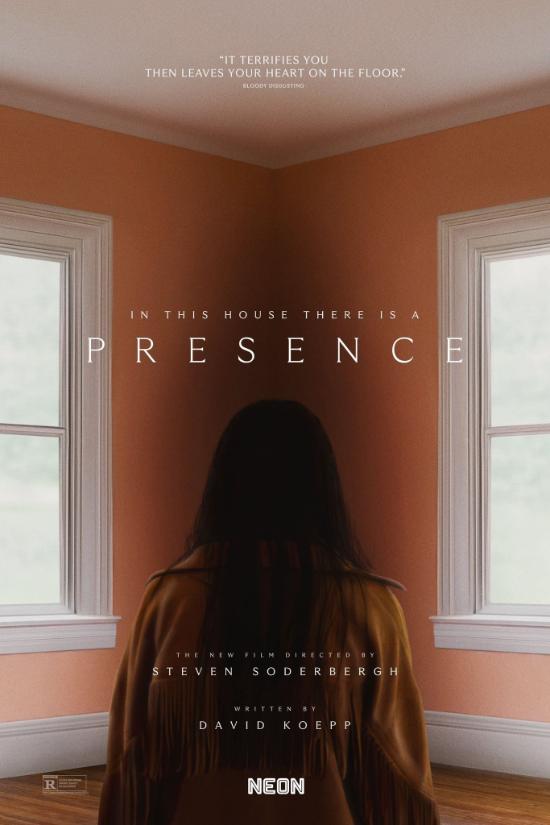Steven Soderbergh crafts a metatextually haunting experience.
At a time when cinema is under constant criticism for being too formulaic, Steven Soderbergh’s Presence sets out to challenge expectations and conventions with its bold experiment in form and storytelling.
A family move into a new house in the suburbs, looking for a new start after their lives have been disrupted by a recent tragedy. Before long, Chloe (Callina Liang), the youngest daughter starts to sense something’s not quite right and while her mother (Lucy Liu), preoccupied with some potential work-related legal problems and doting on her favoured child, Tyler (Eddy Maday), dismisses her concerns as lingering grief over a friend’s sudden death, her father (Chris Sullivan) is more sympathetic. But when Tyler’s rogueish friend Ryan (West Mulholland) starts hanging around, events take a turn for the sinister.
Told entirely in the first person, Presence shows the audience the goings-on in the house exclusively from the entity’s perspective. The film unfolds in vignettes, glimpses of the family’s day to day lives, the mundane ups and downs of every day existence and the secrets, tensions and affections which push and pull at family bonds. The performances anchor the film’s experimental nature with humanity and depth, and the tantalising teases of the wider world of the story and the characters’ actions beyond the perception of the spirit work to enrich the central story rather than frustrate through their sporadic and unresolved natures.
Above all else, Presence is an experiential marvel, though not without its challenges. Soderbergh films the entire movie using an ultra wide-angle lens, delivers a uniquely immersive visual journey. The lens distorts the scenes, imbuing the film with an unsettling, almost surreal quality as space seems to stretch and bend, as though the world itself is subtly out of sync with reality. It’s an ingenious way to externalise the film’s thematic preoccupations, but it’s not without consequences and viewers prone to motion sickness may find themselves grappling with more than just the film’s existential questions as the exaggerated spatial shifts leave the audience a little queasy.
Despite this, it’s hard to deny the sheer boldness of Presence‘s storytelling strategy. Presence isn’t content to simply tell a story; it’s a film that wants to be experienced, to challenge perceptions and evoke a deep emotional and physical response. More a supernatural drama than a horror film, it’s a rare achievement when a movie can feel simultaneously intimate yet estranged. Filmed in a mere three weeks, all in one location and with a small but alchemical cast, it’s a movie that packs a lot into its short runtime and, although comparisons with A Ghost Story are inevitable, does something quite different with its haunting dynamic.








